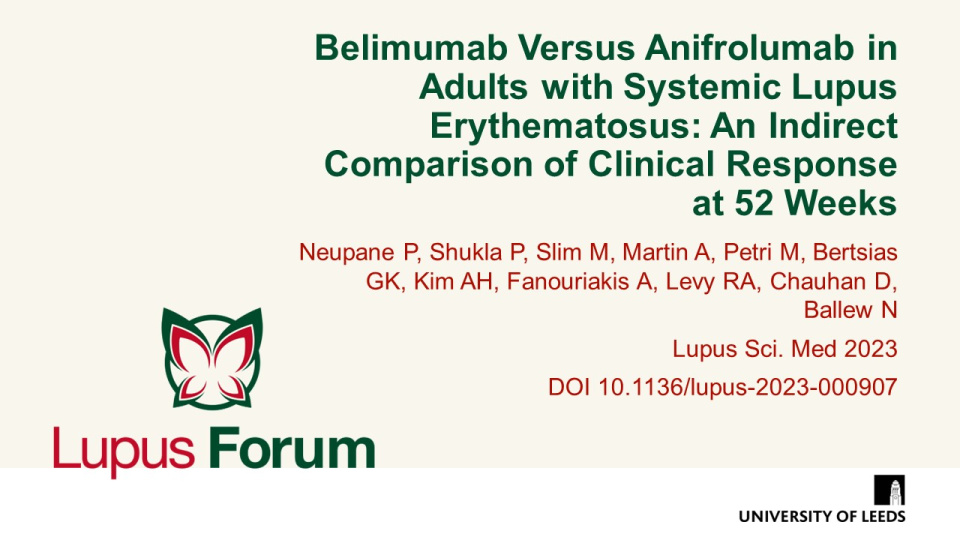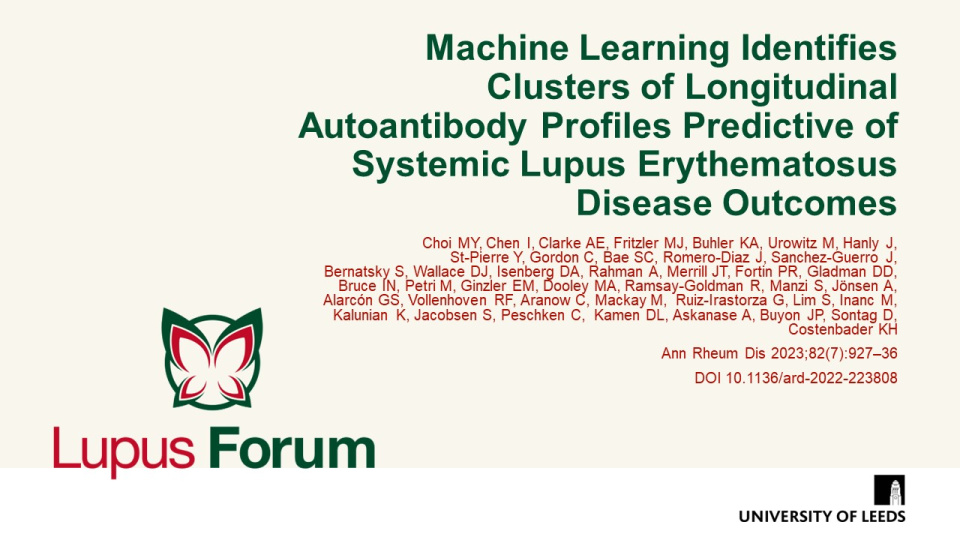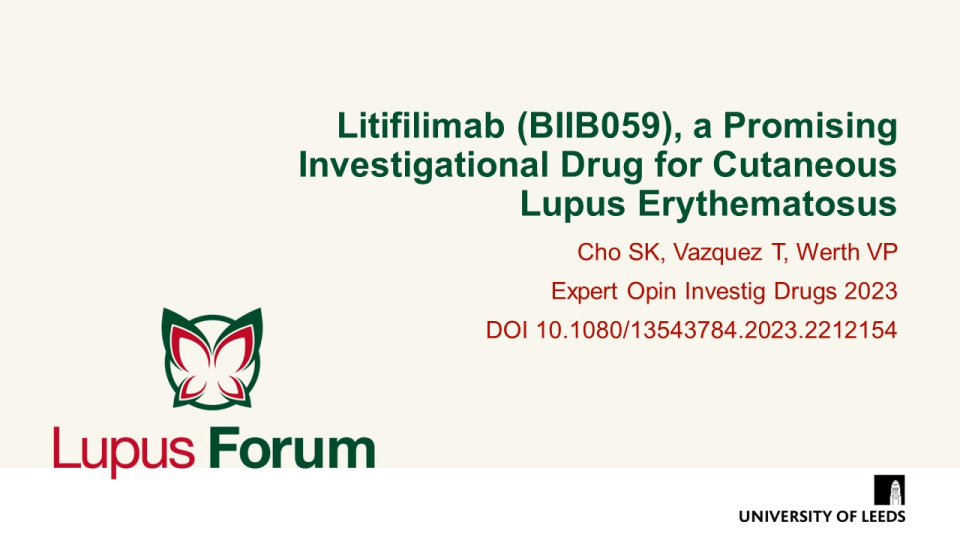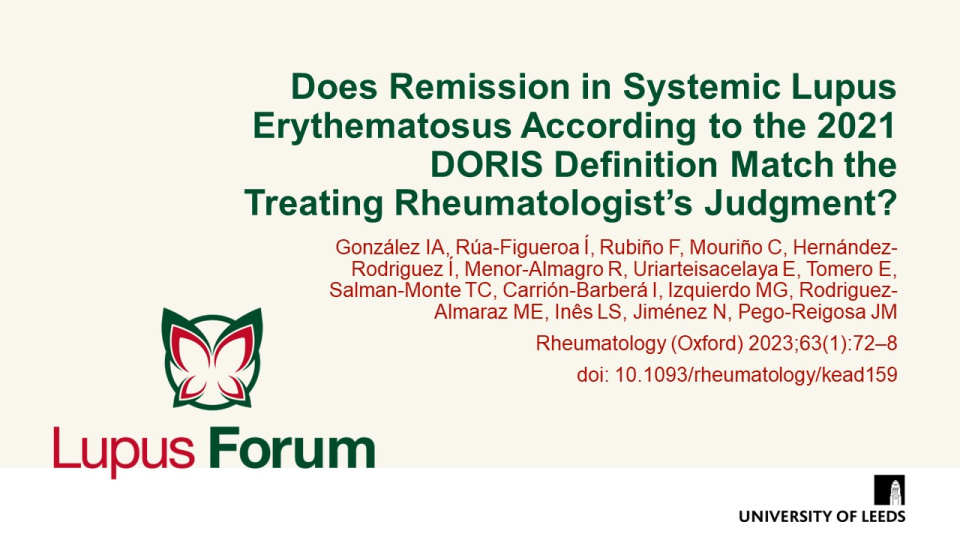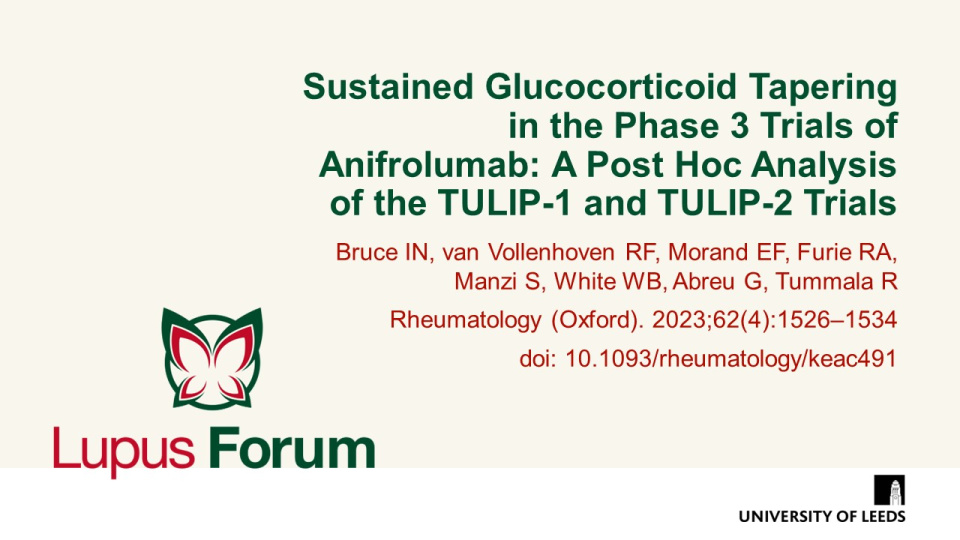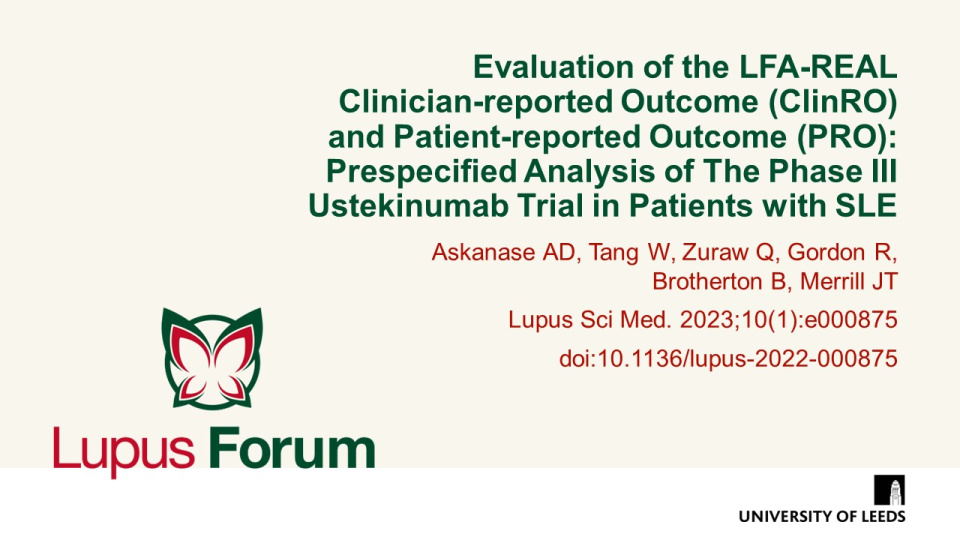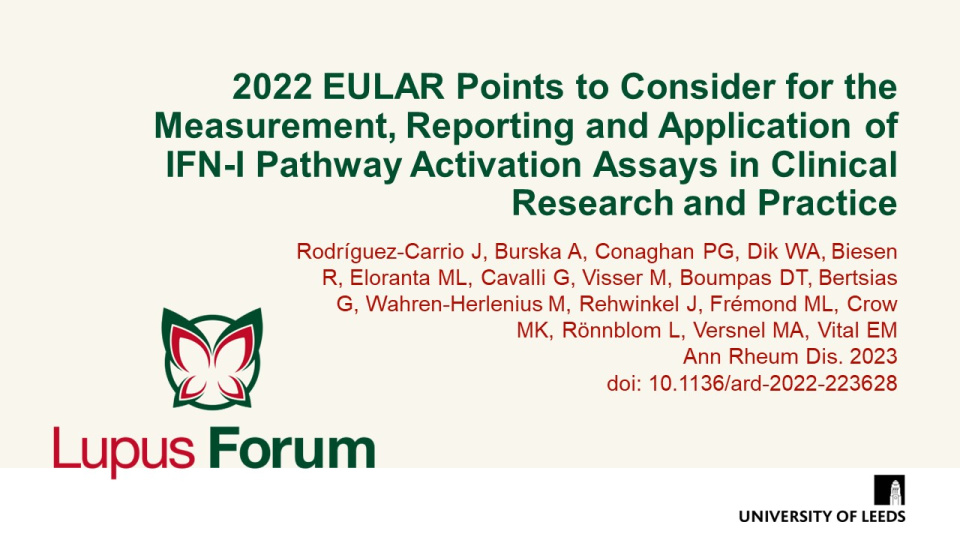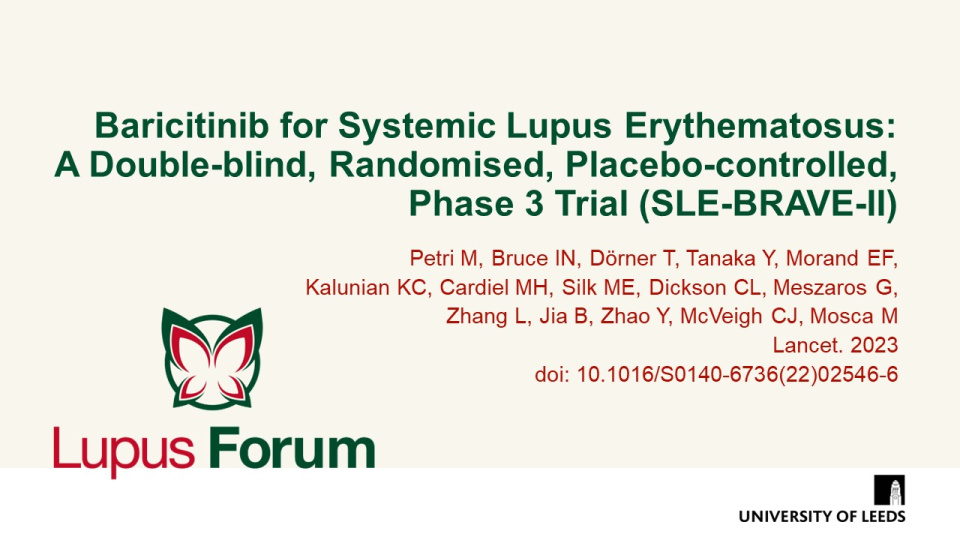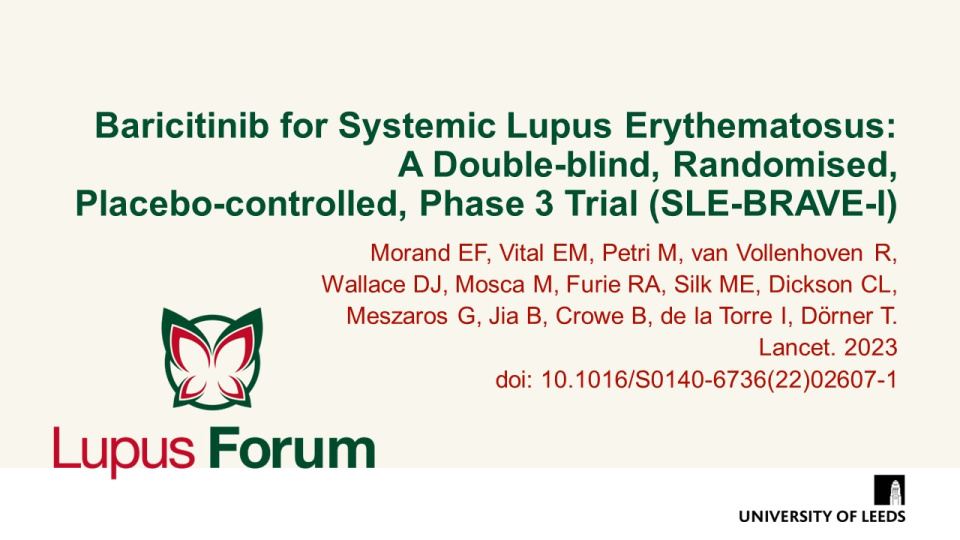Publications
Find coverage of the latest original articles on Lupus, focusing on those with data on therapeutic interventions and those that have clinical impact.
Belimumab Versus Anifrolumab in Adults with Systemic Lupus Erythematosus: An Indirect Comparison of Clinical Response at 52 Weeks
Lupus Sci. Med 2023;10:e000907 doi 10.1136/lupus-2023-000907
This retrospective study by Neupane, et al. compared belimumab and anifrolumab efficacy at 52 weeks in SLE patients. It concluded that belimumab and anifrolumab have equal efficacy, but further studies would be needed for specific patient demographics.
Machine Learning Identifies Clusters of Longitudinal Autoantibody Profiles Predictive of Systemic Lupus Erythematosus Disease Outcomes
Ann Rheum Dis 2023;82(7):927–36 doi 10.1136/ard-2022-223808
Choi, et al. used machine clustering techniques to divide SLE patients into four distinct clusters. This could potentially be used to predict future clinical outcomes, and as benchmarks to study other SLE-related outcomes.
Keywords:
Litifilimab (BIIB059), a Promising Investigational Drug for Cutaneous Lupus Erythematosus
Expert Opin Investig Drugs 2023;15:1-9 doi 10.1080/13543784.2023.2212154
Cho, et al. discuss the current challenges in the approval of CLE drugs and suggest outcome measures that could streamline the process. They also discuss the pharmacodynamics of litifilimab and the current status of clinical trials.
Does Remission in Systemic Lupus Erythematosus According to the 2021 DORIS Definition Match the Treating Rheumatologist’s Judgment?
Rheumatology (Oxford) 2023;63(1):72–8 doi: 10.1093/rheumatology/kead159
Assessment on agreement between the 2021 DORIS and physician-judged lupus activity finds the 2021 DORIS remission to be an achievable target in clinical practice, with substantial agreement between the DORIS definition and physician-judged remission.
Keywords:
Rapid Efficacy of Anifrolumab Across Multiple Subtypes of Recalcitrant Cutaneous Lupus Erythematosus Parallels Changes in Discrete Subsets of Blood Transcriptomic and Cellular Biomarkers
Br J Dermatol. 2023 doi: 10.1093/bjd/ljad089
Prospective single-centre study of anifrolumab in refractory mucocutaneous SLE, indicates rapid efficacy of anifrolumab in discoid lupus erythematosus (DLE) and rituximab-resistant CLE.
Keywords:
Sustained Glucocorticoid Tapering in the Phase 3 Trials of Anifrolumab: A post hoc Analysis of the TULIP-1 and TULIP-2 Trials
Rheumatology (Oxford). 2023 doi: 10.1093/rheumatology/keac491
Pooled analysis of the TULIP trials demonstrates that sustained glucocorticoid (GC) tapering is associated with several clinical benefits in patients with moderate-to-severe SLE.
Keywords:
Evaluation of the LFA-REAL Clinician-reported Outcome (ClinRO) and Patient-reported Outcome (PRO): Prespecified Analysis of the Phase III Ustekinumab Trial in Patients with SLE
Lupus Sci Med. 2023 doi:10.1136/lupus-2022-000875
The Lupus Foundation of America Rapid Evaluation of Activity in Lupus (LFA-REAL) clinician-reported outcome (ClinRO) and patient-reported outcome (PRO) systems show potential as a flexible resource in the evaluation of lupus disease activity and a simple, user-friendly outcome measure for SLE studies.
Keywords:
2022 EULAR points to consider for the measurement, reporting and application of IFN-I pathway activation assays in clinical research and practice
Ann Rheum Dis. 2023 doi: 10.1136/ard-2022-223628
The first EULAR-endorsed points to consider (PtC) for the measurement and reporting of IFN-I assays in clinical research and practice are developed.
Keywords:
Baricitinib for Systemic Lupus Erythematosus: a Double-blind, Randomised, Placebo-controlled, Phase 3 trial (SLE-BRAVE-II)
Lancet. 2023 doi: 10.1016/S0140-6736(22)02546-6
Negative results of SLE-BRAVE-II trial show that evidence for the efficacy of baricitinib in SLE is inconclusive.
Baricitinib for Systemic Lupus Erythematosus: a Double-blind, Randomised, Placebo-controlled, Phase 3 Trial (SLE-BRAVE-I)
Lancet. 2023 doi: 10.1016/S0140-6736(22)02607-1
Primary endpoint in SLE-BRAVE-I study was met for the 4 mg baricitinib group, however, key secondary endpoints were not.


